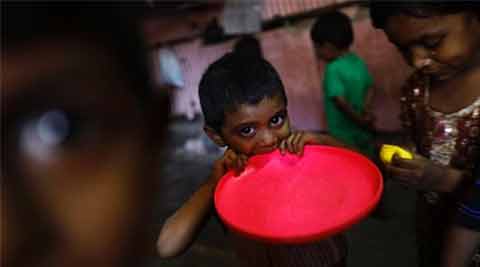How High Court and govt have re-ignited a simmering Meghalaya debate

Late last year, an intervention by Meghalaya High Court over Constitutional freedoms re-ignited an old cultural disagreement over what is supreme in the state: tradition or law. Traditional tribal institutions that have “governed” communities for centuries, have repeatedly locked horns with the state over this contested turf. At the end of May, the government moved to define the rules — issuing an ordinance to lay down the precise powers of the traditional bodies.
OBJECTION, NO-OBJECTION
On December 10, 2014, the HC barred traditional headmen from issuing any kind of certificates, including No-Objection Certificates, residential certificates and birth and death certificates, to residents of their areas, and asked them not to interfere with the administration.
‘PARALLEL GOVERNMENT’
The HC put on record that no rule of law had empowered the traditional headmen to issue certificates, permissions and other documents, and said “they are doing these kinds of activities as per their whim and will and they try to run a parallel government”.
It observed that “in a state two parallel governments cannot run simultaneously”, and “headmen should confine themselves for social development of their locality only…” They could not issue “any kind of certificate unless empowered by rule or laws”, the court said, and directed the state to end “all these types of parallel government practices”.
THE ORDINANCE
On May 29, the state government notified The Meghalaya Local Administration (Empowerment of Traditional Institutions, Traditional Bodies and Headmen in Governance and Public Delivery System) Ordinance, 2015, that sought to “empower” headmen and others in control of traditional institutions in the processes of governance and public delivery systems, but also lay down the boundaries of those powers.
The ordinance made it mandatory for traditional heads to issue certificates — of residence, life (for pensioners), NoCs for running guest houses and hostels, and “any other matter as may be specified” by the government — and said that it must be done within five days. To the anger of traditional heads, the government has fixed charges for issuing these documents, and underlined that they cannot be refused. Aggrieved residents can appeal to government officials “against any decision of refusal or otherwise by the headmen”, and can expect a disposal of the appeal within three working days.
THE PROTEST
Headmen and other officials of traditional institutions — including the chief, syiem, doloi, rangbah shnong, myntri, syiem raid, basan, lyngdoh raid, pator, sirdar, wahadar, nokma songni, gittim or gaonburra — are not amused. The Dorbar Bah Ka Bri Hynniewtrep — grand council all traditional institutions — has threatened to stop cooperating with the government. On Thursday, a joint action committee of the Synjuk Ki Rangbah Shnong (SKRS) constituted by the grand council extended its initial deadline of June 10 for the government to withdraw the ordinance, saying Governor V Shanmuganathan had taken charge recently, and needed time to familiarise himself with the issue.